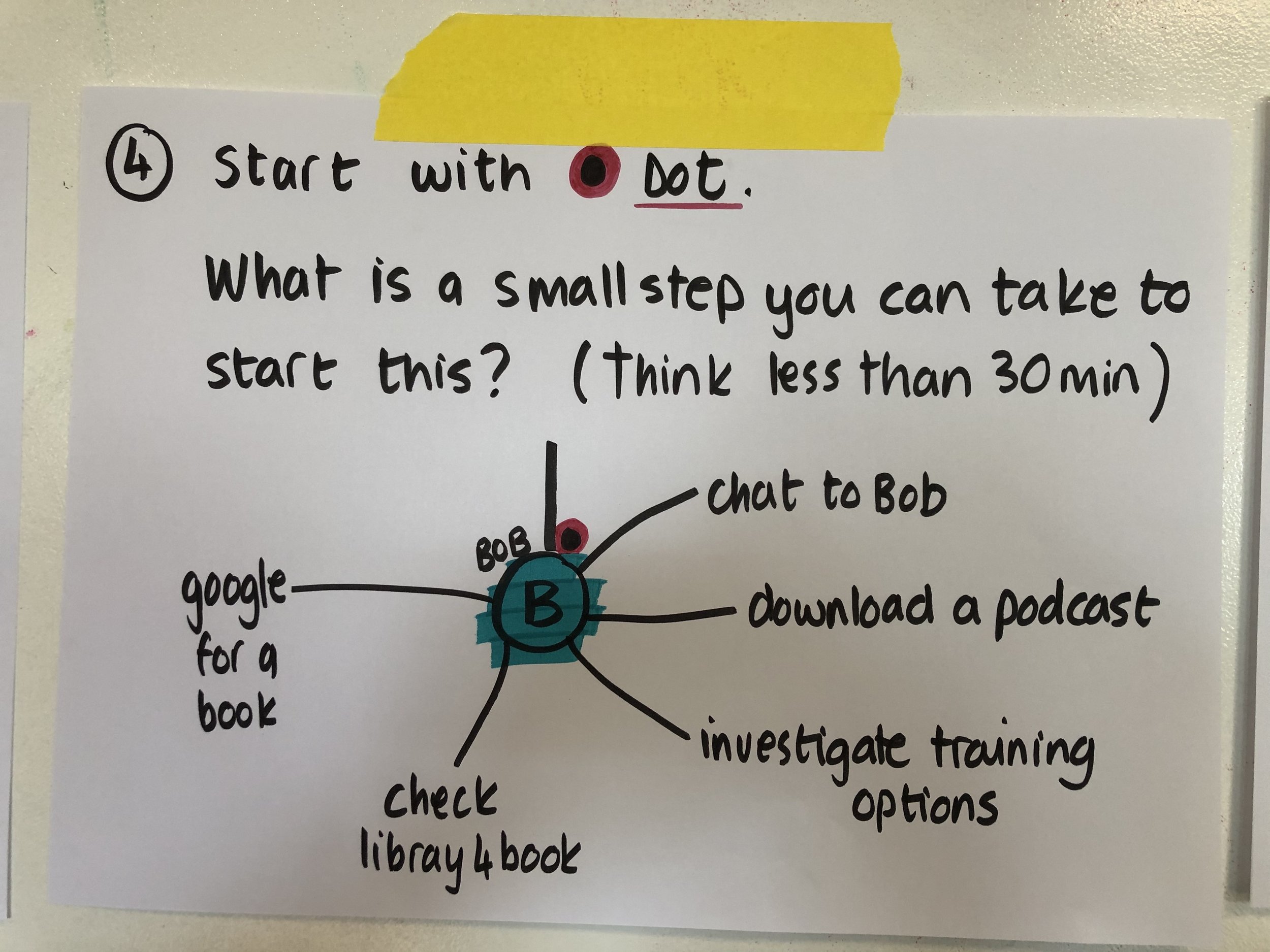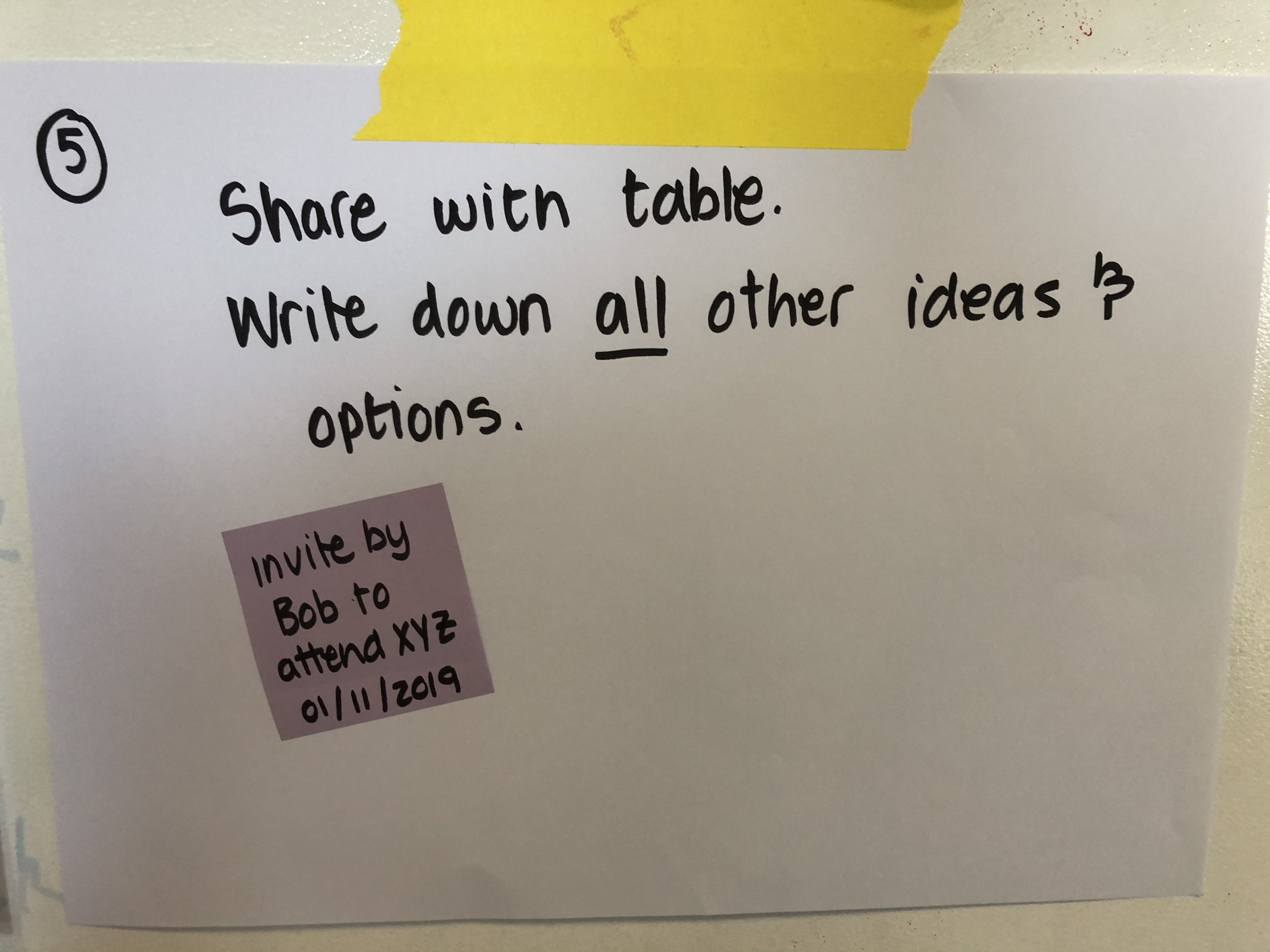Growth Maps
I have been working for many years now. Around 20. And I have always wanted a manager who really cared about my learning as much as I did. For most of this time, I was just provided with courses and/or books that I wanted.. Now as a coach I hear regularly from managers that they want workers that are engaged and wanting to learn and grow, but that many lack motivation and just do their jobs and thus have to be forced to go on training.
I find this fascinating.
In response to this I created this “workshop” called Growth Maps. I experimented a few times with the team that I was part of, and I have since helped managers run this with their teams and direct reports. It always turns into a high energy discussion that surprises everyone.
How to run a Growth Map workshop
Ideally you want 2-10 people, and everyone should participate; manager and team. It’s about collaboration and learning about each other together.
You will need:
2 hours
A3 paper
markers - many different colours
Now run through the following steps. Be sure to allow lots of time for discussions and collaboration. A facilitator or coach could ask these questions, or as a manager you could read them out loud and then answer them with everyone.
What are all the things you wish you had time to learn or read or study or investigate? Use a different colour to mark those that are work-related vs personal or other. Encourage the team to answer this as a mindmap with their name in the middle.
Everyone now shares their mindmap with the group, and talks through it really quickly, maybe a minute per person. Ask if anyone has any skills or knowledge in any of the areas someone wants to learn about. Let that mindmap owner add their names under the item they can help with.
Now, each person dots the one item on their mindmap that excites and energises them the most. And then, each person stars the one they think will make the most difference in their life.
Let’s start with the dot. What is a small step you can take to start this? Think of a step that will take less than 30 minutes.
Some examples are:
google for a book
check if library has book
chat to X to see what they suggest
download a podcast
investigate options for training
sit next to an expert for 30 min
Write as many small steps as you can think of. They should not be dependent on each other, but rather independent, giving you options. I would timebox this to 3-5 minutes.
Now let’s do the same for the star. (Note: some people might have placed a star and a dot on the same item, that is ok).
Share at your table the steps you have created. Ask for feedback or input. If others have suggestions or ideas, write these down too. Even if you’re not sure, these are all options. During this discussion, someone might invite you to join them or bring you a book etc. - make a note near your step.
Pick the one small step you want to focus on first. Here I ask people to block out 30min in their calendars recurring in a time slot that works for them. It should be made clear that this is considered work, and so shouldn’t be forced in over lunch.
I then remind everyone about the 1% compound interest rule. 1% interest on amount X doubles every 72 days. So if you are starting out with X knowledge/ability and you improve it by just 1% everyday, you will be twice as good in just over 2 months.
What happens next
Everyday set aside 30 minutes and work on 1 tiny step. Cross it off when done. Every 2 weeks or so spend your 30 minutes updating your steps with the next steps. If you have people on your team that can help you, involve them.
Going forward you should have a “Celebrate and Share” session at a regular cadence - maybe monthly, sharing as a team what you have done with your learning, and talk about how it made a difference.
Share the power
Your stories inspire others. Your sharing helps others share. Your being brave and vulnerable to talk about personal victories helps others grow and leap when they feel stuck. Managers must share their stories too, as well as look out for opportunities to help their team members succeed.
You have the power to help others become the best version of themselves. You have the power to become the best version of yourself.






